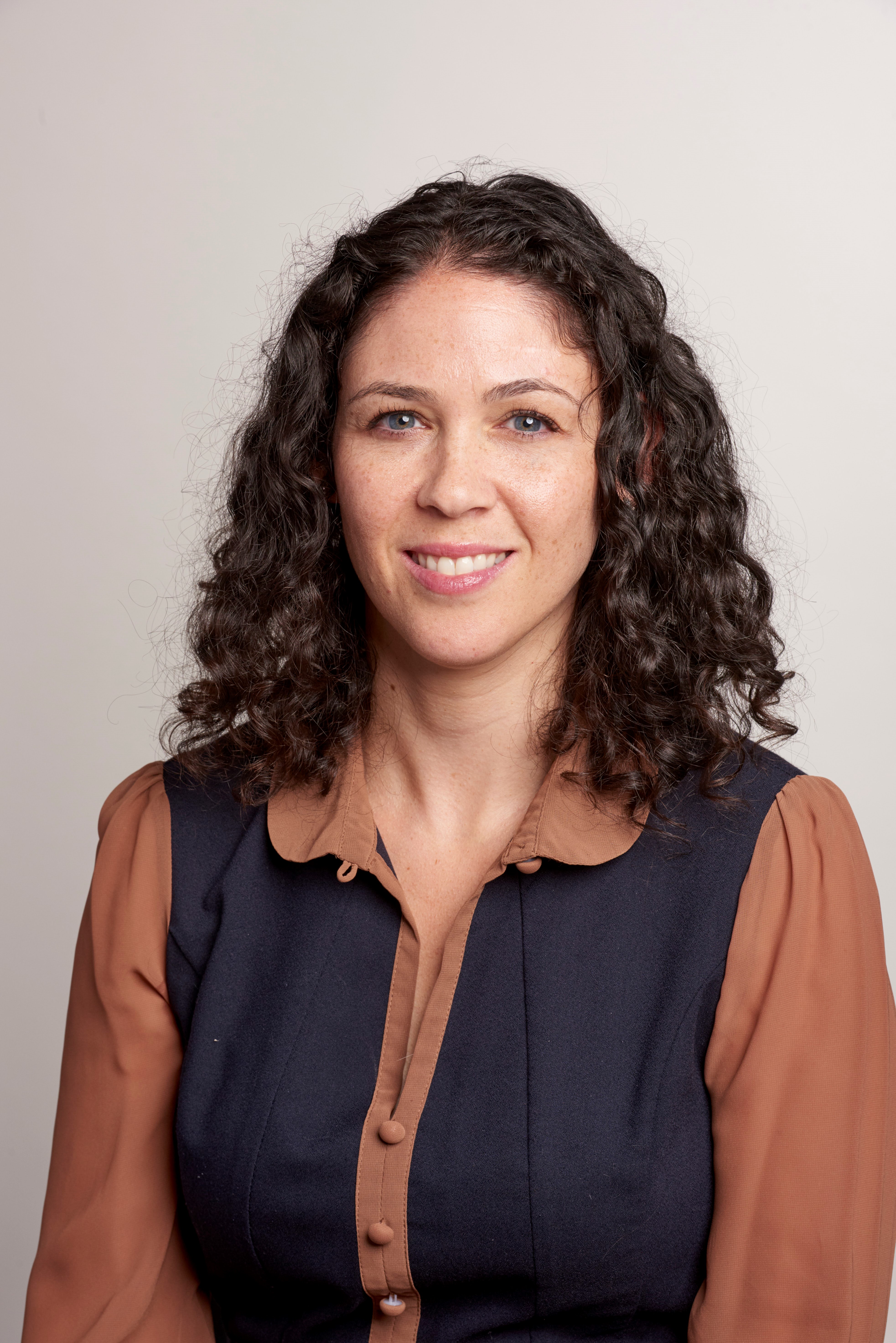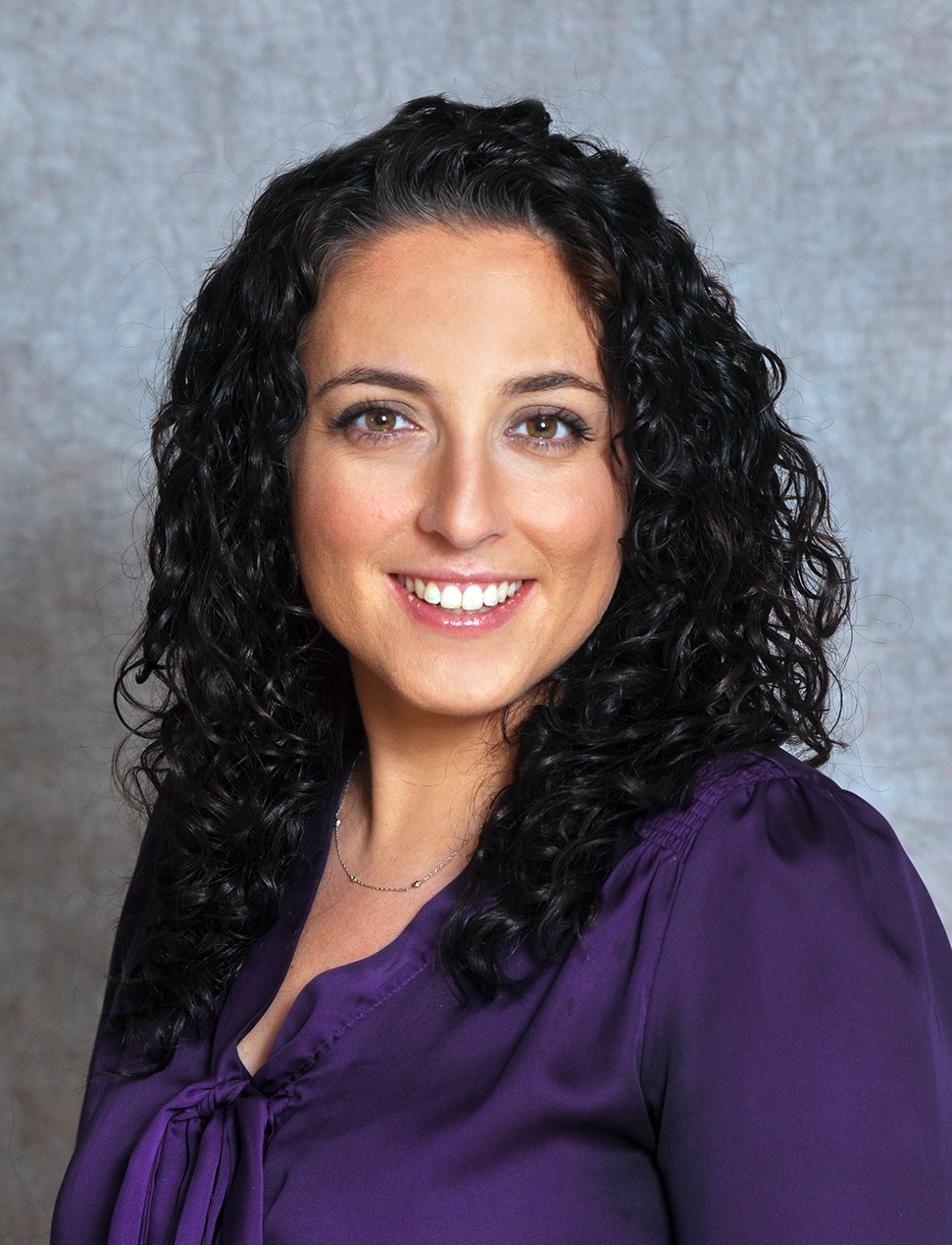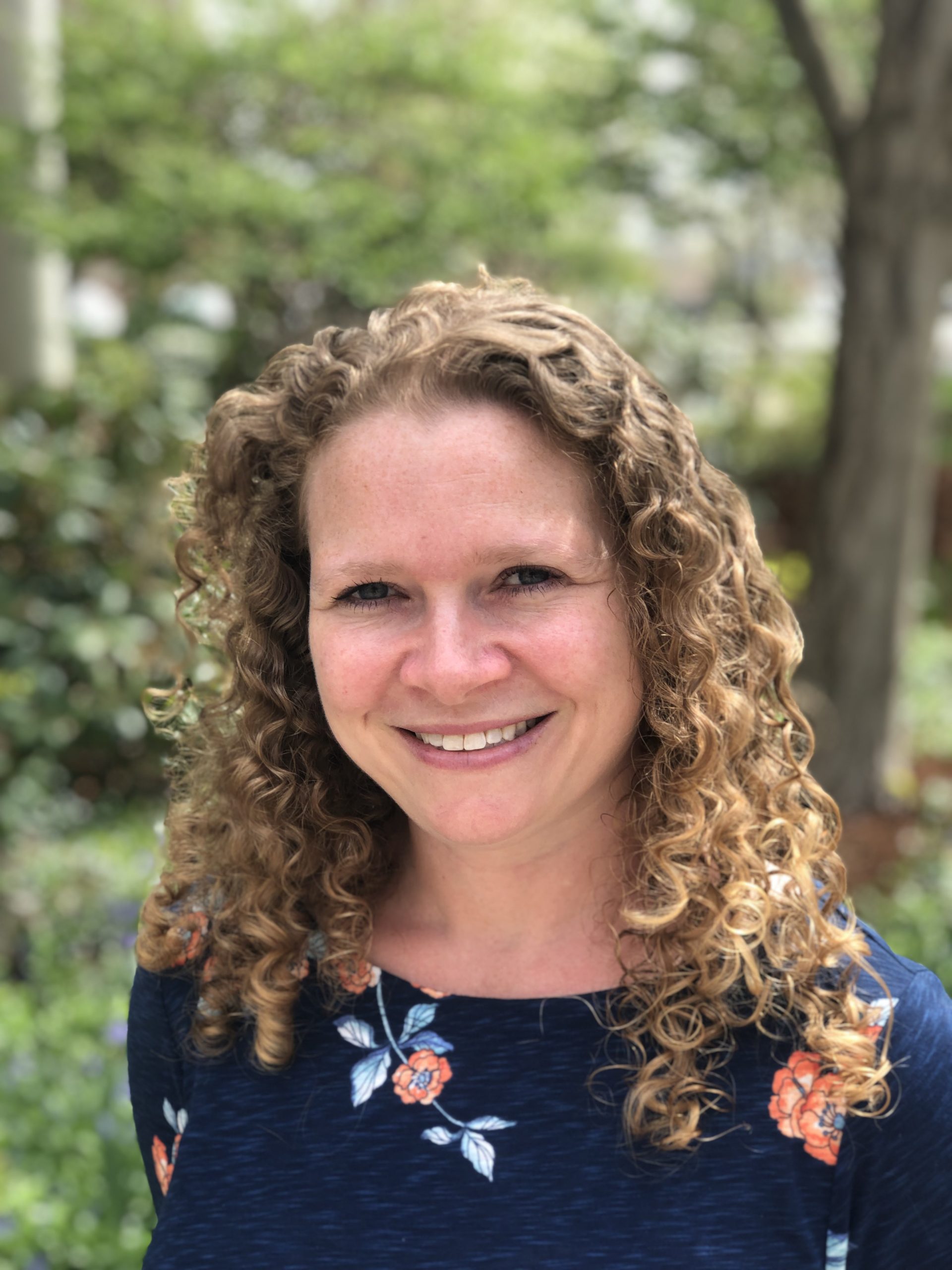Welcome to the Hildebrandt Lab
The Hildebrandt Lab is dedicated to research of the neurobiology and treatment of eating, weight, and body image disturbance across the age spectrum. We use a mixture of neuroimaging, psychophysiology, neurocognitive, and endocrine assays as well as integrated technology solutions to inform the creation of new treatments for these populations. Results from our work in our lab continue to help us to develop, implement, and disseminate empirically supported treatments to our patients and their families.
Our research program involves the study of all types of eating disorder pathology and weight among a diverse group of individuals from the NY Metro area. These research studies are vital to the operation of our program, as they provide treatment to individuals who otherwise may not be able to afford treatment. Additionally, results from these studies help us to continue to employ the most effective courses of therapy for our patients.
Our research studies have been internationally recognized at conferences, and garnered acclaim from peers in the field of eating disorders, and by fellow clinicians. We continue to publish findings from these research studies to both further the body of knowledge on the treatment of eating disorders, and to also improve treatment outcomes for patients. All of the research we conduct is designed to ultimately improve the lives of individuals suffering from any of these issues.
Our research generally focuses on two areas: (1) understanding biological (e.g., genes, brain function, hormones) and psychological mechanisms that may affect the development and maintenance of feeding, eating disorders, and weight disorders; and (2) examining novel treatments for these individuals and their families.
Researchers in our lab are also involved in the study of anabolic steroids and other Appearance and Performance Enhancing Drugs, bariatric surgery outcomes, and alcohol use disorders.
For our clinical services please refer to our Mount Sinai website here.

Hildebrandt Laboratory
Tom Hildebrandt
Chief, Eating and Weight Disorders Program
Director, Hilda and Preston Davis Living Laboratory
Associate Professor of Psychiatry
tom.hildebrandt@mssm.edu
Research
Help us better understand anxiety
Seeking Participants – Help us better understand anxiety by taking this 25 min survey
Researchers at Mount Sinai are recruiting 600 adults to test a newly developed survey about anxiety, which will ask you questions about experiences that might make you feel stress, worry, fear, or disgust. We would like to use this survey in future research, but need to test it first. If you agree to take part in this research, you will be asked to complete one 25-minute long anonymous survey. Access survey here: https://redcap.mountsinai.org/redcap/surveys/?s=3NAXRAYFAAWNWHDX
If you have any questions about this research, please contact the Researcher at Deena.Peyser@mssm.edu. [Study # 21-01869]
Family-Based treatments for adolescents with low weight eating disorders
Family-Based treatments for adolescents with low weight eating disorders
This study includes 6 months of therapy. You will be assigned to one of two treatments, both include 20 family therapy sessions geared towards improving eating behavior. One treatment called Interoceptive Exposure will ask you to eat, practice seeing your shape and weight, and teach you how to tolerate any
negative emotions. The other treatment is called family-based therapy, which is an established evidence-supported treatment for low weight eating disorders. This treatment is teaches parents to help their child to eat and provides incentives for progress.
- A screening process
- 6-months of family based therapy
- Assessments with online surveys, interviews, computer tasks, and meal tasks
- Compensation $800
If you would like more information or want to discuss participating, contact Sophia Wolk at 212-659-8724 or via email sophia.wolk@mssm.edu
Mindfulness-based treatment for adolescents with avoidant-restrictive food intake disorder (ARFID)
Mindfulness-based treatment for adolescents with avoidant-restrictive food intake disorder (ARFID)
This study includes 6 months of family therapy, which will include 20 sessions of Mindfulness-Based Interoceptive Exposure (MBIE) therapy at no cost. This treatment will incorporate mindfulness skills and exposures geared towards improving eating behavior. Interceptive exposure (IE) is believed to help reduce anxiety about eating by targeting internal sensations in the body, and its combination with mindfulness practice has the potential to improve symptoms and acceptance of food.
Participation includes;
- A screening process
- 6-months of family based therapy
- Assessments with online surveys, interviews, computer tasks, and meal tasks
- Compensation $200
If you would like more information or want to discuss participating, contact Sophia Wolk at 212-659-8724 or via email sophia.wolk@mssm.edu
Living Laboratory for Eating and Weight Disorders
We are creating a comprehensive biobank of clinical, neuroimaging, physiological, and genetic data for the study of eating and weight disorders. Data will be used to develop clinical tools, identifying neurobiological mechanisms, and develop novel treatments for individuals seeking treatment and their families.
Participation Involves:
- Diagnostic intake
- Computerized tasks and meal tasks
- Blood draw
- fMRI scan and HRV measures
- Participants are reimbursed for their time
If you would like more information or want to discuss participating, contact Sophia Wolk at 212-659-8724 or via email sophia.wolk@mssm.edu
Gastric Rhythm and Parasympathetic Arousal in Eating Disorders
We are examining differences in gastric rhythm in the stomach by diagnostic group and these signals in response to water load, standardized meal, and food-cue learning. Eligible participants include people with and without eating disorders between the ages of 12 and 60.
Participation Involves:
- Interviews and questionnaires
- Computerized tasks and water/food tasks
- ECG/EGG measures
- Participants are reimbursed for their time.
If you would like more information or want to discuss participating, contact Sophia Wolk at 212-659-8724 or via email sophia.wolk@mssm.edu
Vagus Nerve Stimulation Studies
Vagus Nerve Stimulation for Treatment of Low Weight Eating Disorders
We are running a 4-week trial comparing pre-meal vagal nerve stimulation to pre-meal sham stimulation. Previous research has shown that vagal nerve stimulation (non-invasive electrical current run through one’s ear) can influence gastric motility. We plan to measure the effects of this stimulation on eating and gastric parameters on adolescents with low weight eating disorders between the ages of 14 and 17.
Participation Involves:
- Interviews and questionnaires
- Non-Invasive Vagus Nerve Stimulation
- Stomach Measurements
- Meals
- Participants are reimbursed for their time
If you would like more information or want to discuss participating, contact Sophia Wolk at 212-659-8724 or via email sophia.wolk@mssm.edu
Vagus Nerve Influence on Food Avoidance in Anorexia Nervosa
This research study includes an examination of vagal nerve stimulation (taVNS) on eating behavior and stomach functioning in people who suffer from Anorexia Nervosa. Individuals with eating disorders tend to have different stomach sensations than people without eating disorders. The reasons for this are not well understood and may have to do with signals that your body sends from your brain to your stomach. Understanding whether VNS improves eating behaviors can help identify and test new possible treatments for Anorexia Nervosa.
Participation includes:
- A screening process
- 2 study visits including taVNS stimulation and stomach recordings
If you would like more information or want to discuss participating, contact Sophia Wolk at 212-659-8724 or via email sophia.wolk@mssm.edu
Development and Testing of a Coaching Model for the Treatment of Eating Disorders
This research study includes the use of coaching and educational materials during eating disorder treatment. Treatment includes twelve weeks of therapy and access to a coach and educational materials. We are recruiting patients along with their parents. If you choose to participate, you will be asked to complete a screening visit, you will have access to coaching or educational materials during therapy, and complete a follow-up assessment.
Participation includes:
- Questionnaires and interviews
- 12 weeks of eating disorder therapy
- Assigned to a group including parent coaching & patient educational materials or parent educational materials & patient coaching
If you would like more information or want to discuss participating, contact Desiree Webb at 212-659-8756 or via email desiree.webb@mssm.edu
Eating and Weight Disorders Program Intensive Program
Eating and Weight Disorders Program Intensive Program
Our clinical services and research are intended to develop and deliver novel interventions based on evolving science. To better understand the impact of our clinical treatment in our Intensive Program and identify areas for improvement, this study will measure symptom changes during the course of treatment in our program. This will help us understand symptoms changes over time and to identify the most effective treatment practices for individuals with eating disorders.
Participation includes:
- Being enrolled in EWDP-IP
- 3 study visits during your treatment in the EWDP
- Interviews and Questionnaires
If you would like more information or want to discuss participating, contact Sophia Wolk at 212-659-8724 or via email sophia.wolk@mssm.edu
Brain Aromatase and Inhibitory Control in Bulimia Nervosa
We are studying the role of aromatase in inhibitory control in adults with bulimia nervosa. The study will examine whether aromatase will be different across groups of people and whether the signals for this system are less responsive in your body and brain due to eating behaviors.
Participation Involves:
- Interviews and questionnaires
- 1 PET/MRI brain scan with an Aromatase ligand
- Computerized tasks and meal tasks
- Participants are reimbursed for their time
If you would like more information or want to discuss participating, contact Sophia Wolk at 212-659-8724 or via email sophia.wolk@mssm.edu
Metabolic Changes to Dietary Intake in Low Weight Eating Disorders
We are interested in studying whether there are changes in metabolic signals related to increased dietary fat and low carbohydrate diet among treatment seeking adults who have been weight restored from a course of anorexia nervosa.
Participation Involves:
- 8 weekly sessions of dietary counseling
- Following a low-carbohydrate diet for 8 weeks that is weight neutral
- Weekly blood draws
- fMRI scan
- Dietary counseling sessions are provided without charge for participation.
If you would like more information or want to discuss participating, contact Chinara Tate at 212-659-8724 or via email chinara.tate@mssm.edu
Self-Control in Bulimia Nervosa
We are interested in whether changes in brain activity and behavior after fasting and after eating could help to explain symptoms of bulimia nervosa. If you binge eat and purge, are female, right-handed, and aged 18-35, you may be eligible to participate in this study. We are also recruiting women aged 18-35 who have never had an eating disorder to serve as a comparison group.
Participation includes interviews, questionnaires, an fMRI scan that takes place after a 16-hour fast, and an fMRI scan that takes place after a standardized meal. Reimbursement for time and travel will be provided.
For more information, please call 212-659-8799 to speak with a member of our staff or e-mail Thalia Viranda at thalia.viranda@mssm.edu.
ABCD: Gonadal Hormones and the Development of Binge Eating
Using data from the longitudinal Adolescent Brain Cognitive Development (ABCD) Study, we are testing if there are measurable sex differences in the development of binge eating behaviors and binge eating disorder. We predict that gonadal hormones have a significant impact on the development of these behaviors. We are using computational methods to examine changes over time and the influence that gonadal hormones might have on neurocircuitry.
Noom Weight Loss
We are studying the long-term impact of a successful commercially available weight loss app (Noom Health) in comparison to a Digital Education Program (Noom Digital Health) for weight loss, quality of life, psychosocial functioning, and self-reported health status.
Recruitment for this study is now closed.
Publications
For a comprehensive and up to date list of our publications, please visit:
Our Team

Tom Hildebrandt, PsyD, FAED
Chief, Eating and Weight Disorders Program
Director, Hilda and Preston Davis Living Laboratory
Associate Professor of Psychiatry
Dr. Hildebrandt is a clinical psychologist specializing in treatment and biological basis of eating, weight, and addictive disorders. His clinical focus is on the use of CBT and family-based therapy (FBT) for eating disorders, the novel use of exposure therapy for body image and feeding/eating disorders, and mHealth interventions. He is an active clinician, supervisor, and teacher. His research interests include biological basis of anorexia nervosa and avoidant restrictive food intake disorder, contributions of hormones and lipid signals (e.g., endocannabinoids) to eating and anxious behavior/reward learning, and sex differences in eating and addictive disorders. He uses a range of techniques including neuroimaging, laboratory feeding, and electrophysiology. He is a trained statistician with expertise in methods devised to study heterogeneity (e.g., finite mixture models) and novel clinical trial designs (e.g Adaptive Randomized Trials). He is on the editorial board of several top journals (Behaviour Research and Therapy, International Journal of Eating Disorders), elected member of Eating Disorder Research Society (EDRS), and is a board member of Global Foundation for Eating Disorders (GFED). He has been continuously funded by the National Institutes of Health since 2007 and has over 100 publications. He is also lead in the development of several mHealth interventions for eating disorders, obesity, and bariatric surgery populations and co-investigator on a mobile platform patent. His current focus is on the development of a clinical biobank for eating disorders through the implementation of a living laboratory where patients, clinicians, and researchers work together to develop the next generation of clinical science for the field.

Robyn Sysko, PhD
Director of Research, Bariatric Services, and Psychology Externship
Associate Professor of Psychiatry
Dr. Sysko is an Associate Professor of Psychiatry in the Eating and Weight Disorders Program at the Icahn School of Medicine at Mount Sinai. She completed her graduate training at Rutgers, the State University of New Jersey, and she was a post-doctoral fellow and faculty member in the Eating Disorders Research Unit at the Columbia University College of Physicians and Surgeons. She received a K award from the NIDDK to examine psychosocial outcomes among adolescents receiving bariatric surgery under the supervision of B. Timothy Walsh, MD. Since joining the Eating and Weight Disorders Program in 2014, Dr. Sysko has helped to execute all major studies, including imaging and treatment research on low weight eating disorders, patients with binge eating symptoms, and individuals pursuing bariatric surgery. The lab’s work is focused on trying to understand the underlying mechanisms of disgust in eating pathology and interventions that might help improve outcomes for individuals with a broad range of eating and weight disorders.

Eve Khlyavich Freidl, MD
Medical Director, Eating and Weight Disorders Program
Associate Professor of Psychiatry
Eve K Freidl is an Associate Professor of Psychiatry at the Icahn School of Medicine at Mount Sinai and Medical Director of the Eating and Weight Disorders Program. She joined the faculty in September 2018. Dr. Freidl earned her medical degree from Drexel University College of Medicine. She was a resident at Montefiore Medical Center and completed her Child and Adolescent Psychiatry residency at Weill Cornell and Columbia University Medical Centers at New York-Presbyterian. Following clinical training, she received a NIMH T32 post-doctoral research training grant to pursue resarch at Columbia University in affective, anxiety and related disorders. While a research fellow, Dr. Freidl received an American Academy of Child and Adolescent Psychiatry Pilot Research Award to study genetic contributions to simulation medication side effects of weight loss and growth suppression. She participated in an assessment of adolescent bariatric surgery candidates and research related to the functioning and outcomes of these adolescents. She also gained clinical expertise in the evaluation and psychological and pharmacological treatment of eating disorders. From 2013- 2018 she worked in the faculty at Columbia University Clinic for Anxiety and Related Disorders (CUCARD) and served as medical director. There she specialized in the assessment and treatment of children, adolescents and their families with anxiety and eating disorders. Dr. Freidl’s clinical work remains focused on anorexia nervosa, bulimia nervosa and avoidant/restrictive food intake disorder. Her research interests include treatment development and understanding biological markers that influence illness and treatment outcomes.

Chinara M Tate, PhD, RD
Director of Nutrition
Chinara Tate is a doctor of behavioral nutrition and registered dietitian (RD) with specific research interest in examining the neural correlates of eating disorders and the neuromodular effects of food. Dr. Tate is the Director of Nutrition at the Eating and Weight Disorders Program at the Icahn School of Medicine at Mount Sinai. Her clinical work as a dietitian is grounded in evidence-based practice with an emphasis on cognitive behavioral coaching, nutrition counseling and individualized nutrition planning. Dr. Tate received two MA’s in Nutrition, Public Health and Neuroscience and received her PhD in behavioral nutrition at Columbia University’s Graduate School of Arts and Sciences. Her nutritional philosophies are premised on conducting critical analysis of the existing nutrition and health behavior research so that her clients receive the most accurate information available to become experts in driving their own health and well-being.

Laura A Berner, PhD
Assistant Professor of Psychiatry
Laura Berner is a clinical psychologist interested in how cognitive neuroscience can help us understand eating disorder symptoms. She earned her PhD from Drexel University and completed her post-doctoral fellowship at the University of California San Diego Eating Disorders Center for Treatment and Research. She joined the Icahn School of Medicine at Mount Sinai faculty in 2019. Her research aims to understand how altered self-control may promote cycles of binge eating, purging, and restricted eating. To this end, she combines innovative behavioral tasks with structural and functional brain imaging, computational modeling approaches, and self-report and laboratory-based symptom measures. Dr. Berner’s ultimate goals are to build new explanatory models of eating disorders, identify predictors of outcome, and translate research findings to tools for clinical decision-making and novel interventions. Her research has been funded by the National Institute of Mental Health, the Hilda and Preston Davis Foundation, the American Psychological Association, and the Academy for Eating Disorders. In addition, Dr. Berner has over a decade of experience assessing and treating adolescents and adults with eating disorders at all levels of care. She is trained in dialectical behavior therapy, acceptance and commitment therapy, cognitive processing therapy, family-based treatment, and traditional and enhanced cognitive behavioral therapy for eating disorders, personality disorders, mood and anxiety disorders, and post-traumatic stress disorder

Billie Katz, Psy.D
Assistant Professor of Psychiatry, Director of the Young Adult Intensive Outpatient Program
billie.katz@mountsinai.org
Billie Katz is an Assistant Professor of Psychiatry at the Icahn School of Medicine at Mount Sinai and Director of the Young Adult Intensive Outpatient Program at the Center of Excellence in Eating and Weight Disorders. Dr. Katz specializes in the assessment and treatment of adolescents and young adults with anorexia nervosa, bulimia nervosa, and binge eating disorder. She has extensive training and expertise in treating the intersection of eating and weight disorders, emotion dysregulation, anxiety, depression, suicidal and non-suicidal self-injurious behaviors, suicidal ideation, and personality disorders. Dr. Katz earned her MS in School Psychology and PsyD in Clinical Psychology from the Combined School-Clinical Child Psychology Program at the Ferkauf Graduate School of Psychology, Yeshiva University. She completed her postdoctoral fellowship at Cognitive and Behavioral Consultants, where she received advanced training in CBT and DBT, and her predoctoral internship at Mount Sinai Services/Elmhurst Hospital Center.

Deena Peyser, PhD
Assistant Professor of Psychiatry
Deena Peyser is an assistant Professor of Psychiatry. Dr. Peyser specializes in the assessment and treatment of children, adolescents, and adults with anorexia nervosa, bulimia nervosa, binge eating disorder, substance use disorders, and posttraumatic stress disorder. She received her PhD in clinical psychology from Rutgers University where she worked in the Center of Alcohol Studies researching the impact of sex differences on social support and substance use outcomes, with a focus on young mothers with substance use disorders. Dr. Peyser completed her predoctoral internship at the Hudson Valley VA where she treated veterans suffering from posttraumatic stress disorder, substance use disorders, severe mental illness, and personality disorders. Her current research focuses on testing a novel therapeutic intervention for adolescents with low-weight eating disorders focused on interoceptive exposure

Jeneane Solz, PhD
Assistant Professor of Psychiatry
Jeneane Solz is a clinical psychologist who specializes in the treatment of comorbid eating, anxiety and behavioral disorders in children, adolescents, and young adults. Dr. Solz is an Assistant Professor of Psychiatry in the Eating and Weight Disorders Program at the Icahn School of Medicine at Mount Sinai. She has expertise in using evidence based treatments to work collaboratively with families and schools to address an array of child behavioral and emotional disorders. Dr. Solz received her MA and PhD in clinical psychology from Hofstra University. She completed her pre-doctoral internship in the child and adolescent clinical track at Bellevue Hospital Center, and her post-doctoral training at Columbia University Clinic for Anxiety and Related Disorders (CUCARD). Additionally, Dr. Solz is a certified therapist and level 1 trainer in Parent Child Interaction Therapy (PCIT) from PCIT International. As an Instructor of Psychology (in Psychiatry) within the Division of Child and Adolescent Psychiatry at Columbia University Medical Center she continued providing services at CUCARD where she specialized in cognitive behavioral therapy for children that present with comorbid externalizing and internalizing disorders. Dr. Solz’s research interests have focused on parenting stress, the use of technology to enhance behavioral treatments, and on the provision of evidence based treatments in clinical settings. Dr. Solz is a member of the American Psychological Association, Association for Behavioral and Cognitive Therapies, and Association for Contextual Behavioral Science. Dr. Solz has presented her work at several national and international professional organizations including the Association for Behavioral and Cognitive Therapies, the American Psychological Association, the World Psychiatric Association, and Parent-Child Interaction Therapy International.

Heather Rosen is a licensed clinical psychologist and Assistant Professor of Psychiatry at the Center of Excellence in Eating and Weight Disorders at Mount Sinai. She specializes in the evaluation and treatment of eating disorders in adolescents and young adults, and her research interests and experiences broadly focus on the development, implementation, and evaluation of psychotherapeutic interventions for youth and families. Dr. Rosen earned her doctoral degree in Clinical Psychology from the Catholic University of America in Washington, D.C., and completed her doctoral internship and postdoctoral fellowship at Stanford University School of Medicine. Prior to joining Mount Sinai, she was a Clinical Assistant Professor of Psychiatry and Behavioral Sciences at Stanford University School of Medicine where she provided inpatient and outpatient treatment to patients and families in the Child and Adolescent Eating Disorders Program, served as a primary clinical supervisor for psychology and psychiatry trainees, and taught graduate students in the PGSP-Stanford PsyD Consortium. In her role as Clinical Lead/Attending Psychologist at Seattle Children’s Hospital, Dr. Rosen led the expansion of outpatient eating disorder services and was the primary clinical supervisor for the eating disorders team. She is a certified Family-Based Treatment (FBT) therapist and supervisor, and serves as a faculty member for the Training Institute for Child and Adolescent Eating Disorders, which trains and provides certification in FBT to licensed mental health professionals worldwide.

Allison Falkenberg, LCSW
Clinical Program Coordinator
allison.falkenberg@mssm.edu
(212) 659-8724
Allison Falkenberg is a Licensed Clinical Social Worker at the Mount Sinai Center for Excellence. She received her Master’s Degree in Social Work at The Silberman School of Social Work at Hunter College and joined the Mount Sinai Health System in 2017. She provides clinical and administrative leadership, provides services to those with eating and weight disorders and supervises the clinical practice of other social workers. In addition, Allison currently specializes in the diagnostic assessment process of children and adults with eating disorders and is the clinic’s primary program coordinator for all new patient referrals.

Sabrina Shih, LMSW
Outreach Social Worker
sabrina.shih@mountsinai.org
(212) 659-8724
Sabrina Shih is a Licensed Master Social Worker at the Mount Sinai Center for Excellence in Eating and Weight Disorders. She received her Bachelor’s Degree in Industrial Relations with a psychology minor at McGill University and her Master’s Degree in Science in Social Work at Columbia University. She joined the Mount Sinai Health System in 2021. She provides outreach coordination and clinical services, including diagnostic assessments, psychotherapeutic interventions, and treatment planning, for children and adults with eating disorders. In addition, Sabrina also serves as the center’s liaison for outreach and community initiatives.

Sarah Retchin, LMSW
Social Worker
sarah.retchin@mssm.edu
(212) 659-8724
Sarah Retchin is a Licensed Master Social Worker at the Mount Sinai Center for Excellence in Eating and Weight Disorders. She received her Master’s Degree in Science and Social Work at Columbia University and joined the Mount Sinai Health System in 2022. Her clinical work focuses on assessment and treatment of children and adults with eating and weight disorders. In addition, Sarah facilitates clinical services for the center’s Young Adult Intensive Outpatient Program.

Julia Babcock, LMSW
Social Worker
julia.babcock@mssm.edu
(212) 659-8724
Julia Babcock is a Licensed Master Social Worker at the Mount Sinai Center for Excellence in Eating and Weight Disorders. She received her Bachelor’s Degree in Liberal Arts at Texas Christian University with a minor in Spanish. She received her Master’s Degree in Science and Social Work at Columbia University. She joined the Mount Sinai Health System in 2022. Her clinical work focuses on assessment and treatment of children and adults with eating and weight disorders.

Jessica Bibeau, MA, PMP
Project Manager
jessica.bibeau@mssm.edu
Jessica Bibeau is the project manager in the Eating and Weight Disorders Program. She has over 20 years of experience in research/project management for NIH-, industry-, and internally-funded research in the areas of weight loss, skin cancer prevention, health, social media, and eating disorders. Additionally, she conducts workshops, trainings, and consultations to train new managers on formal project management techniques applied in academic research. Jessica is responsible for regulatory approvals and submissions, multi-site communication, developing and ensuring adherence to the standard operating procedures, overseeing data management, managing staffing, and budgetary monitoring.

Kate Holland, PhD
Post-Doctoral Fellow
katherine.holland@mssm.edu

Desiree Webb
Clinical Research Coordinator
desiree.webb@mssm.edu
(212) 659-8724
Desiree Webb joined Mount Sinai’s Eating and Weight Disorders program in July 2022. Prior to joining EWDP, she studied at Barnard College where she majored in Psychology and Economics. Her final independent study investigated the effect of self-compassion primes on perfectionism-related anxiety. Her research interests include identifying the maintaining mechanisms of anorexia nervosa for the development of targeted treatment interventions, as well as testing the use of a broad anxiety model for eating disorders.

Maia Chester
Clinical Research Coordinator
maia.chester@mssm.edu
(212) 659-8799
Maia Chester joined Mount Sinai’s Eating and Weight Disorders program in July 2022. She currently coordinates the Fasted-Fed Bulimia Nervosa study and Gut Hormone study, which investigate how fasting and feeding influence inhibitory control and decision-making in women with bulimia nervosa. Prior to joining EWDP, Maia received her bachelor’s degree in Psychology and Criminology with honors from the University of Pennsylvania. As an undergraduate, Maia’s research focused on identifying correlates of antisocial behavior, including conducting two independent studies investigating the influence of the COVID-19 pandemic on children’s emotion recognition development and the influence of maladaptive traits on substance use choices, respectively. Maia is passionate about investigating and leveraging evidence-based, mind-body approaches to treating mental illness holistically. She plans to pursue a Ph.D. in clinical psychology with an emphasis in health psychology.

Xi Chen
Clinical Research Coordinator
xi.chen@mssm.edu
(212) 659-8724
Xi Chen joined Mount Sinai’s Eating and Weight Disorders program in June 2023. She currently coordinates the Living Laboratory Study, which is dedicated to creating a biobank for eating disorders to enhance future treatment, and leads the Decision-Making Study that seeks to understand the decision-making processes and food choices in patients with anorexia nervosa. She also co-coordinates the mindfulness-based interoceptive exposure (MBIE) clinical trial for children with ARFID. Before joining the EWDP, Xi earned dual Bachelor’s Degrees from Columbia University and City University of Hong Kong where she majored in Psychology and completed two theses on investigating unique patterns of adolescent pregnancy and exploring gender differences in the factors related to persons in custody’s recidivism, respectively. Her research interests are deeply rooted in women’s mental health, including but not limited to understanding the biological and psychological factors that contribute to or prevent the development of eating disorders during women’s various developmental stages.

Lisa Bozza-Canals
Program Assistant
elisabeth.bozza-canals@mssm.edu
(212) 659-8724
Lisa Bozza-Canals provides administrative support to faculty, staff, and patients engaged in care at the Mount Sinai Center of Excellence in Eating and Weight Disorders.

Maiya Harris
Program Assistant
maiya.harris@mountsinai.org
(212) 659-8724
Maiya Harris joined the Mount Sinai Center of Excellence in Eating and Weight Disorders in March of 2022 to assist the program in day to day operations. As program assistant, she provides administrative, logistical, and programmatic support to each provider and patient within the program. Prior to joining EWDP, Maiya spent several years volunteering with the Visiting Nurse Service of New York and working with several other departments at Mount Sinai as a floater, learning many ways to aide providers and patients. With several years experience in customer service and a passion for psychology, Maiya spends her time with routine personnel, assisting patients with difficult matters, and helping maintain the program’s finances. Taking pride in her work, Maiya looks forward to doing what she loves most – helping others.
For more information or to make an appointment:
Tel: 212-659-8724
Fax: 212-849-2561
Email: ewdpresearch@mssm.edu
Address
1425 Madison Ave. (corner of 98th St. and Madison Ave.)
Icahn Building, Floor 6, Room 32
New York, NY 10029
